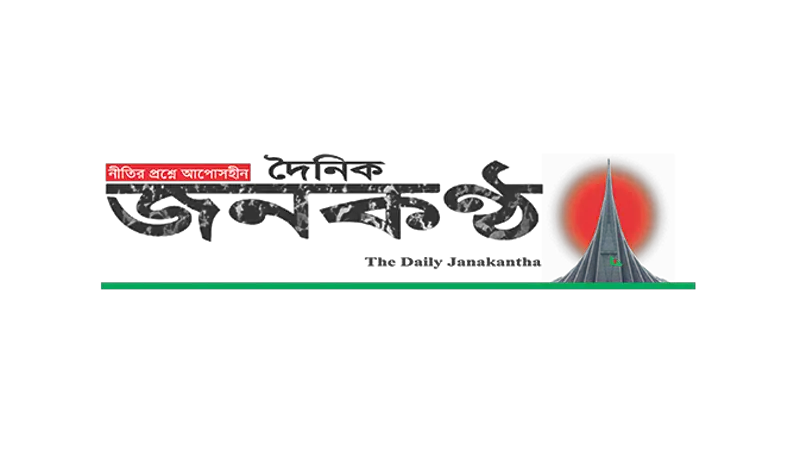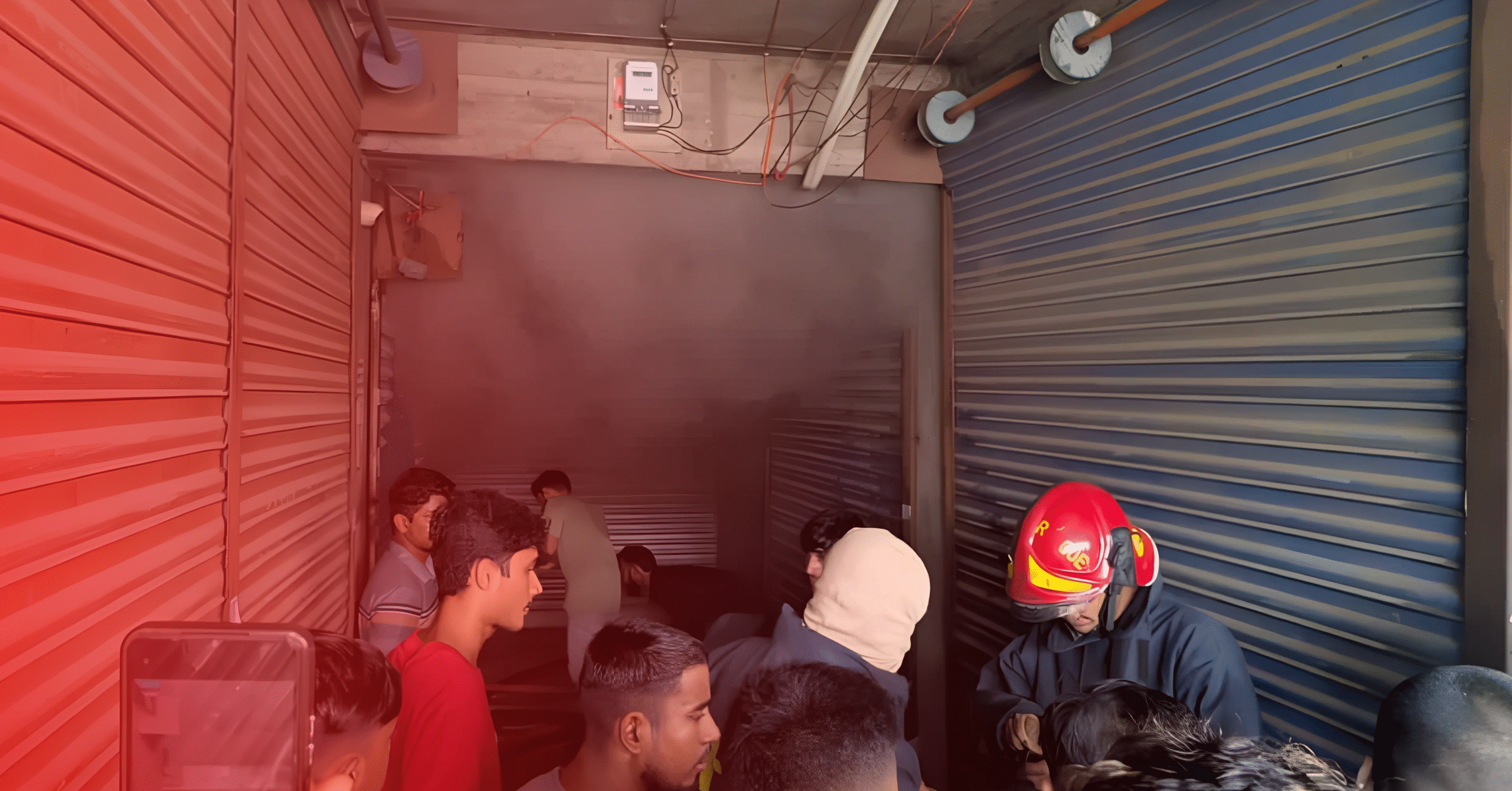Journalists and employees of the daily newspaper Janakantha have announced a complete suspension of all operations in protest of the sudden termination of 20 journalists. The dismissals reportedly occurred after the journalists protested the newspaper’s decision to change its banner colour to black in support of the ruling party’s August mourning program. Until the situation is resolved, no news or updates will be published under the Janakantha name. A public emergency notice has also been issued by the protesting journalists.
Sudden Dismissal of 20 Journalists Sparks Protest
Journalists working at the national daily Janakantha have taken a bold step by halting all news operations of the newspaper. The protest came after 20 journalists were suddenly fired for objecting to the management’s political alignment.
The issue began when the newspaper’s banner was turned black as a gesture of solidarity with the Awami League’s August mourning program. This political move sparked strong reactions among the working journalists.
Read More: Shocking Impact of 1973 University Ordinance: How It Corrupted Bangladesh’s Higher Education System
Protest Over Changing Banner Colour
The journalists disagreed with the management’s decision to shift the red-coloured banner to black. They believed it reflected an undemocratic alignment with the ruling party. Their protest led to immediate consequences.
“দৈনিক জনকণ্ঠের মালিক পক্ষ স্বৈরাচার আওয়ামী লীগের শোকের মাস আগস্ট কর্মসূচির সঙ্গে একাত্মতা ঘোষণা করে পত্রিকার ব্যানার লাল থেকে কালো করার প্রতিবাদ করায় ২০ জন সাংবাদিককে হঠাৎ চাকুরিচ্যুতি করে।”
“The Janakantha management declared support for the tyrannical Awami League’s August mourning program and changed the newspaper banner from red to black. In protest, 20 journalists were suddenly fired.”
Complete Halt of Newspaper Operations
In response to the incident, all journalists and staff members of Janakantha declared that they would cease all news publications and operations of the newspaper until the issue is resolved.
“এই ঘটনায় জনকণ্ঠের সকল সাংবাদিক ও কর্মকর্তা-কর্মচারী জনকণ্ঠ পত্রিকার সকল নিউজ প্রচার বন্ধ রাখার সিদ্ধান্ত নিয়েছে।”
“Because of this incident, all journalists and staff members of Janakantha have decided to stop all news publishing activities.”
They also warned that anyone attempting to publish under the Janakantha name will be doing so at their own risk, without the collective support of the newsroom.
Emergency Notice Issued by Journalists
The protesting journalists have also released an urgent public notice dated August 2, 2025. The notice directly accuses the newspaper’s editor Shamima A. Khan of being responsible for the dismissals due to ideological differences.
“জরুরি বিজ্ঞপ্তি
আগস্ট উপলক্ষে স্বৈরাচারের দোসর জনকণ্ঠ পত্রিকা গতকাল কালো রঙ ধারণ করেছিল। তার প্রতিবাদে আমরা লাল রঙ দিয়ে আজ পত্রিকা বের করার কারণে জুলাই বিপ্লবের পক্ষে থাকা সকল সাংবাদিকদের চাকরিচ্যুত করেছে পত্রিকার সম্পাদক শামিমা এ খান।”
“Emergency Notice: Yesterday, the Janakantha newspaper, in support of the tyrants, adopted black color for August. In protest, we used the red banner today. As a result, the editor, Shamima A. Khan, fired all journalists who support the July revolution.”
They firmly declared:
“এই বিষয়টি সুরাহা না হওয়া পর্যন্ত জনকণ্ঠের সকল কার্যক্রম বন্ধের ঘোষণা করছি।”
“Until this matter is resolved, we announce the suspension of all Janakantha operations.”
Warning Against Unauthorized Publication
The emergency notice included a stern warning to any individual who attempts to continue publishing the newspaper during the suspension:
“এর পরও যদি কেউ দায়িত্ব নিয়ে পত্রিকা বের করেন তাহলে অবশ্যই নিজ দায়িত্বে বের করবেন।”
“If anyone decides to publish the paper, they must do it at their own responsibility.”
A Clear Stand by the Journalists
This move by the journalists marks a rare act of collective protest within the Bangladeshi media industry. The tension between editorial independence and political pressure appears to be at the heart of this crisis.
The use of the phrases “স্বৈরাচার”, “জুলাই বিপ্লব”, and “কালো রঙ ধারণ” shows that this is more than an internal office conflict—it’s deeply political.
Source: Janakantha
















